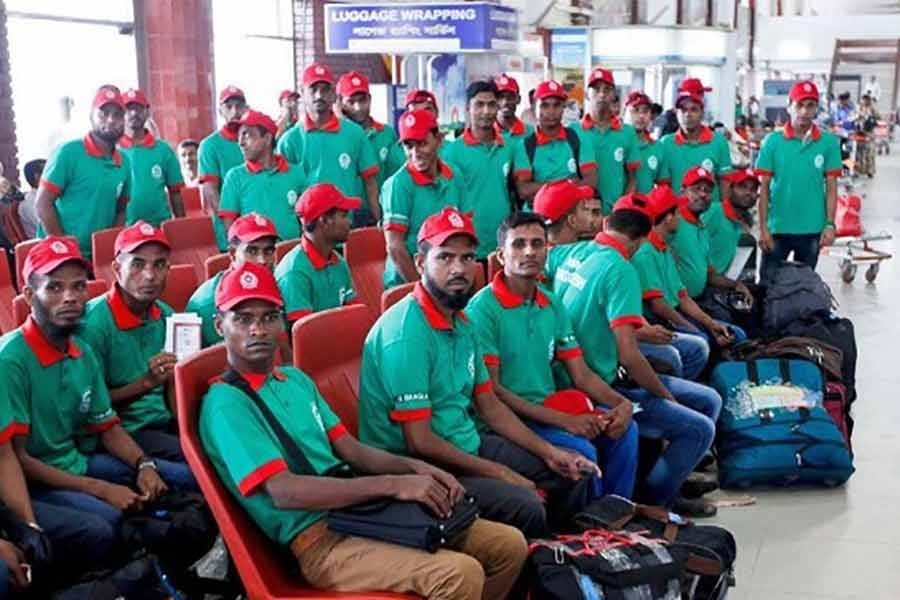Like many of the downsides of government policies aimed at calming the impact of the pandemic on life and livelihood, the reintegration plan for returnee migrant workers is far from adequate, and it is the lack of proactive and facilitating arrangements that have come up in the way of any meaningful outcome. Reports say a large majority of returnee migrant workers cannot apply for reintegration loan provided by the government.
The reintegration plan is no doubt an appreciable move. The objective is to engage the returnee workers, most of whom lost their jobs in overseas workplaces, in small income-generating ventures at home with soft loan till they are in a position to seek alternative means of livelihood, including availing opportunities of going back to their workplaces abroad. A recent study conducted by Ovibashi Karmi Unnayan Programme (OKUP) showed that about 80 per cent of the returnees have decided to engage themselves in activities like dairy and poultry farming, sewing, driving auto-rickshaws etc. But it is the client-unfriendly loan disbursement procedure that is found to deter the objective of the reintegration plan. The Ministry of Expatriates' Welfare and Overseas Employment introduced a loan scheme worth Tk 2.0 billion through Probashi Kallyan Bank (PKB) in July last year at a rate of 4.0 per cent interest. The money was provided by the Wage Earners' Welfare Fund (WEWF), created with the contribution of migrant workers. The scheme provides for loans ranging from Tk 100,000 to Tk 500,000 per person. The government created another fund worth Tk 5.0 billion as reintegration loan for returnee workers with higher rate of interest at 9.0 per cent for male and 7.0 per cent for female workers. While the latter is not encouraging enough to attract loan seekers, the problem with the PKB loan is its procedural needs that among others include collateral for upper ceiling beyond Tk 200,000. It has, however, been learnt that lately, because of very poor response, the collateral-free ceiling has been raised.
A FE report quoting the aforementioned OKUP study said that about 74 per cent of the interviewed migrants can barely meet their basic requirements upon return to their hometowns or villages, and many of them are yet to find any livelihood opportunities. Besides, 77 per cent of returnees who did not apply for the loan yet, will be in great misery if they are not able to access the reintegration loan, the report adds.
With more than 300,000 migrant workers now stranded at home and having to rely on small savings, it is critically important that the authorities are more forthcoming so that the reintegration scheme makes sense. Concerned quarters believe that besides raising the collateral-free loan ceiling, there is a need to simplify the loan procedures to bring an increased number of returnees under the scheme. There is also a need to provide advisory services for firming up plans for whatever income generating plans the workers are up to.


